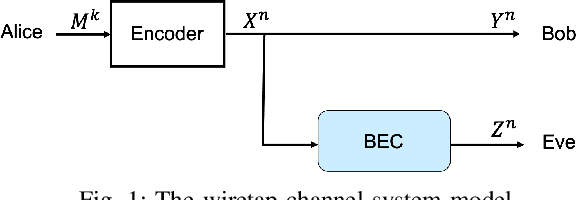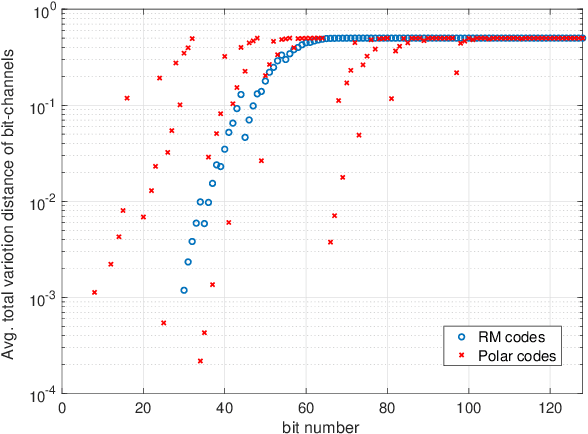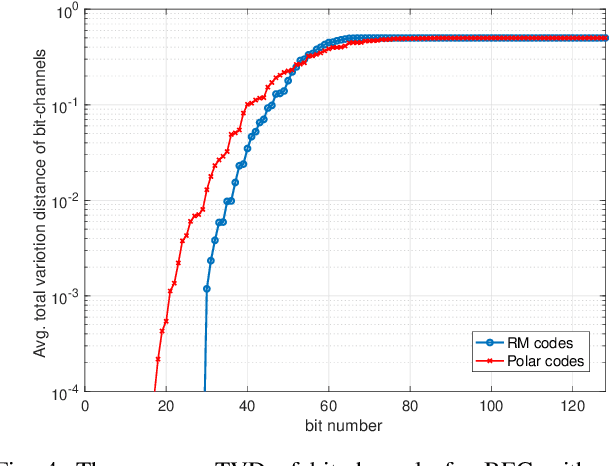Finite Blocklength Secrecy Analysis of Polar and Reed-Muller Codes in BEC Semi-Deterministic Wiretap Channels
Paper and Code
May 22, 2021



In this paper, we consider a semi-deterministic wiretap channel where the main channel is noiseless and the eavesdropper's channel is a binary erasure channel (BEC). We provide a lower bound for the achievable secrecy rates of polar and Reed Muller codes and compare it to the second order coding rate for the semi-deterministic wiretap channel. To the best of our knowledge, this is the first work which demonstrates the secrecy performance of polar and Reed-Muller codes in short blocklengths. The results show that under a total variation secrecy metric, Reed Muller codes can achieve secrecy rates very close to the second order approximation rate. On the other hand, we observe a significant gap between the lower bound for the achievable rates of polar codes and the the second order approximation rate for short blocklengths.
 Add to Chrome
Add to Chrome Add to Firefox
Add to Firefox Add to Edge
Add to Edge